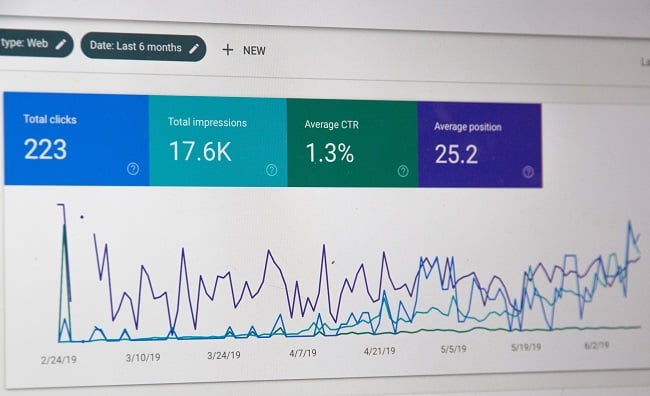This article is the first in a series of four that will look at CRMs in depth, considering what a CRM is; what a CRM can add to your business; how you can choose the best CRM for your business - and how to get the most from it.
In the simplest of terms, a CRM (Customer Relationship Management) is a software tool that allows businesses to track their interactions with customers and prospects in a flexible and scalable way. It pools a myriad of customer data in one place, allowing a business to record and, in some cases, automate its interactions with customers and prospects.
In these various ways, a CRM assists businesses in managing their day-to-day activities in the key areas of marketing, sales and customer service operations. CRM software systems can be focused on one or more of these areas (functions), or they may cover more - depending on the system you buy.
It is worth looking at each of these three key functionalities of CRMs in more depth.
Sales process management. Some CRMs are primarily focused on sales management, for example, Salesforce. They help you track and measure sales activity to help progress leads and generate potential new sales. It can provide key data for calculating KPIs, such as number of sales calls per sale and the duration of the sales cycle. As well as being a tool for sales management, the most successful CRM deployments of this nature also keep a keen eye on making the lives of salespeople easier and more productive.
- You may like: Tools and tips for effectively measuring marketing ROI
Marketing automation. Beyond sales management, most (but not all) CRMs also offer elements of marketing automation that enable marketing activities to be automated, made personal and scaled easily. It tracks marketing activities such as email campaigns and web interactions to help generate leads that aren’t yet sales.
Service management. Increasingly, CRM functionality includes key aspects of post-sale customer service and allows for an ongoing relationship, helping with customer retention and cross-selling. It can, for example, offer support to customers in the form of repair calls and warranty management.
By automating a huge variety of activities and making certain processes more efficient, a CRM can help to foster strong customer relationships, in turn improving customer retention and loyalty.
CRM: A transformative tool
Any business is fundamentally engineered around three basic principles - people, processes and tools. A CRM solution represents the latter and is a remarkably powerful tool at that.
The most important thing any business considering investing in a CRM needs to understand before going any further is that it is, first and foremost, an enabler for transformation. It transforms your business from one based on opinion to one based on fact. Driving such a significant change, however, requires more than just a piece of software.
What a CRM can and can’t do
The ultimate goal of any CRM is to help generate deeper customer relationships that lead to faster sales, greater retention and increased profits. It accomplishes this by offering a platform through which you can learn more about your customers - who they are, and how they behave.
This insight can help you understand why they are interested in your offerings. In turn, this should allow you to spot trends and better anticipate (and fulfil) customer wants and needs. A CRM is also about using customer data to help your business operate more efficiently by organising and automating customer-facing aspects of the business such as sales, marketing and, of course, analytics.

So a CRM can do a lot of things, but it won’t invent solid sales, marketing or service processes if these are not already in place. However, it can be used to make sure that everyone follows the same processes.
When do you need a CRM?
Once you have sound processes and the right data in place, a CRM can provide a remarkably powerful way of helping to manage them consistently - provided everyone within your team is committed to using the system, of course.
The most obvious way to tell you need a CRM is that your customer base is getting too large to be managed reliably through spreadsheets. Manually maintained spreadsheets can only be used to capture a few key data points. With a CRM you will be able to record every email interaction, every web visit and more besides - things for which a spreadsheet is not suited. Furthermore, the worry with a spreadsheet is that you’ve got a lot of personal and identifiable information, which could mean you fall foul of the GDPR.
It could also be that your sales and marketing teams have become too large to rely on colleagues passing information on colloquially, or your team might be based in different locations or time zones where direct communication isn't simple. Even more simply, you might have more than one person working with a customer. In either case, you need a consistent system that’s accessible to the whole team across all areas of the business so you have complete transparency across the organisation.
A worthy enhancement
A CRM can be a highly sophisticated tool through which to track and manage every stage of the business-customer relationship with all the benefits this brings. It’s a remarkably powerful business tool that will (if utilised properly) give your business the means to better manage, and understand your customer relationships. But it’s not a problem fixer. Ultimately, a CRM is there to add value to a business, regardless of size or ambition, and represents an opportunity to nail down the best, most consistent processes for your business.
Decided that your business is ready for a CRM? You now need to take a look at the next article in the series - how to choose the right CRM for your business.




